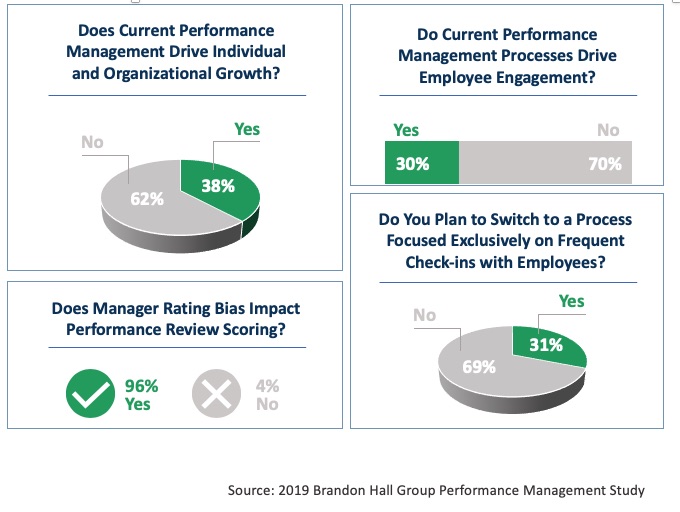The COVID-19 crisis has changed the dynamics of work, probably forever. Employees work differently than they did before stay-at-home orders and learn almost entirely through digital tools.
Remote work and digital learning are likely to remain well above pre-Coronavirus levels, given the flexibility and potential cost savings they provide. In addition, many industries will be operating differently and need additional skills and competencies as they navigate the economic recovery.
There will be no “return” to normal as businesses emerge from lock-down; there will be transition—probably several transitions—to new ways of working based on public health and economic recovery. The only certainties are ongoing disruption and ambiguity.
Therefore, employers’ expectations of employees must change and evolve. How will that impact performance evaluation? What does great performance look like in an environment dramatically different than just a few months ago?
Despite consistently poor results, more than two-thirds of companies opted to tinker with performance reviews and ratings rather than re-invent performance management as continuous development of skills and competencies critical to the business. This new pandemic reality, in which the volatile business conditions require employees to work in continually fluctuating situations, is the perfect time to transform the approach to performance.

Years of Change and Evolution
With the arrival of COVID-19, employees changed the ways they work and learn. The majority work from home. Live, instructor-led training, by necessity, largely disappeared, replaced by digital learning. Most organizations also shifted what they teach. Other than mandated compliance training, existing plans were scrapped in favor of training only on the skills employees need to be productive in their new work environments. There is no reason to believe that approach will change when stay-at-home orders are lifted and businesses take their next steps in their evolution.
What employees do, how they do it, and why they do it will shift repeatedly as employers recover from the economic and emotional upheaval the pandemic brought. Their capacity to learn more than what they need to know to do their jobs will be limited in the short term.
The dynamics of everyone’s job has changed and will continue to evolve as the recovery from COVID-19 occurs. We are not talking months, but perhaps two or three years of continual change and evolution.
The standards by which performance is evaluated also will need to evolve. For years, Brandon Hall Group has advocated a model of continuous coaching and feedback, ongoing assessment, and flexible goal-setting based on progress and goal attainment. That model is even more relevant now. Performance is fluid based on situations and should be assessed, coached, and reassessed as situations change.
Employees require continual feedback so they can adjust as they go along. Coaching and partnership with their managers allow them to learn from experience, which is critical because formal learning opportunities, at least in the short term, may be minimal due to organizations and employees’ bandwidth limitations. This methodology also gives the organization a better lens to assess the potential of employees based on their agility—how they adapt to changing situations and expectations. Their agility should determine their future value to the organization.
More importantly, their performance should be applied to the assessment of their future potential to contribute in this new era of constant change. Waiting to recognize, reward, and assess someone’s future potential in the wake of unprecedented stress and change should not wait months for a formal annual evaluation. Change is constant, so coaching, feedback, and development should be constant, as well. Delaying it may result in resentment, lack of engagement, and retention risk.
The old model was being re-examined by many organizations and was slowly evolving—but that should accelerate. Annual or twice-a-year formal evaluations can still occur if it is part of an organization’s culture. But those evaluations should serve as a memorialization of ongoing assessment rather than a single source of evaluation. In addition, organizations must focus on employee well-being. Workers at all levels have been under unprecedented stress from the pandemic and the disruption will continue for months—even a year or more—during the economic and emotional recovery.
To download a complimentary copy of Brandon Hall Group’s Managing Remotely During Disruption Playbook- Research and Guidance for COVID-19 and Beyond, click here.
Claude Werder is senior vice president of Research Operations and Principal HCM Analyst at Brandon Hall Group. The firm’s vision is to inspire a better workplace experience, and its mission is to empower excellence in organizations around the world through its research and tools. Brandon Hall Group has five HCM practices and produces the Brandon Hall Group HCM Excellence Awards and the annual HCM Excellence Conference, in West Palm Beach, FL.




